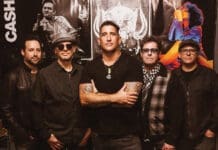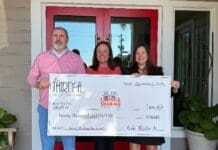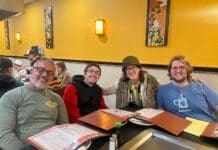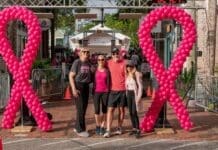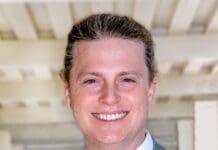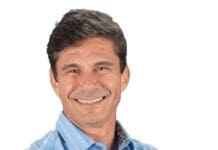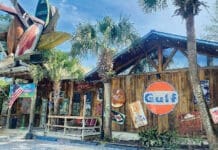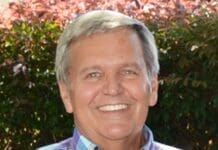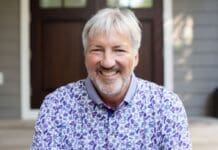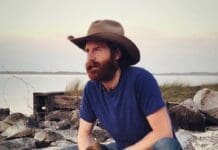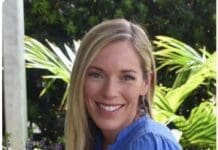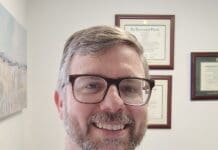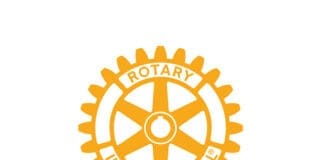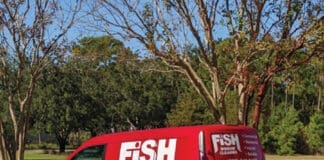By Kirk McCarley
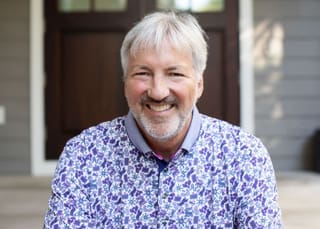
Self-admittedly, James Lawrence is rather ordinary. He lives in Utah with his wife and their five kids. Like many of us, he seeks to eke out a living, in his case as a coach and motivational speaker.
Despite his “every man” existence, Lawrence has garnered quite a few accolades. He completed 22 half triathlons in one year, establishing a world record. That would be 1.2 miles swimming and 56 miles cycling, followed by a half marathon of 13.1 miles, all in one day. Two years later, in 2012, he upped his game, achieving 30 full-distance triathlons (2.4 miles swimming, 112 miles cycling, and 26.2 miles running), another world record. He was the first person to cycle to the top of Mount Kilimanjaro, 19,340 feet in elevation.
In 2021, he completed his ultimate feat of 100 triathlons in the same number of days… consecutively. His achievements have earned him the title of “Iron Cowboy,” attributed to the Stetson-like headwear he often wears in his marathon segments.
One would think that he possesses an extraordinary genetic marker that enables him to accomplish these ultra-human triumphs. In fact, physicians and scientists have performed 21 different medical and genetic tests on Lawrence. The results: James Lawrence possesses exactly zero special physical attributes. Physically, there are no markers that distinguish him from any other 46-year-old male.
In his book, “Iron Hope,” Lawrence speaks of both the physical and mental pain that he experienced. It was not uncommon that during some of his runs, he blacked out, only to be revived by a member of his support team. The torment could be excruciating at times: blisters, shin splints, strains; pain levels described as much as 18 or 20 on a “scale of one to 10.” Swimming at temperatures below freezing, cycling into head winds gusting up to 50 mph, running in snow, turning to rain, then deteriorating to ice were characteristic of his March to June 100 triathlons.
Lawrence’s experiences provide lessons for the less physically driven. “Whenever you struggle, you have a choice—slip into victim mentality or learn and grow and become better from the struggle. You must remind yourself that you are not a victim, not in this season, not in your mindset, and not in this moment of intense difficulty,” he tells us.
It was almost a year ago, at a nearby location off the Gulf of Mexico that 15-year-old Lulu Gribben encountered a shark while swimming just off the shore during a family vacation. Bit multiple times, and with her life very much hanging in the balance, Lulu was airlifted to a hospital, where life-saving surgery was performed that included amputations of her right leg below the hip and left hand. Lulu inspired many of us by first surviving the attack, but then accepting the realities of amputation, adjusting to prosthetic devices, and remarkably returning to school just 15 weeks following the incident.
Today, she inspires us and even joined professional golfer Justin Thomas to knock down a putt during a Pro-Am event. Of that opportunity, Lulu commented, “This has been an experience of a lifetime.” Thomas added, “There aren’t many kids her age that’d be that positive. You’re affecting and inspiring more people than you realize.”
None of us are in James Lawrence’s league; likely, very few will ever run a marathon or cycle a hundred miles in a day. Most of us will not experience the pain that both Lulu and he have gone through. They do inspire us, though, to consider our own stories. For example, what may have been the struggle to raise a family on limited resources? What was the impetus to persevere? What was it like to lose a spouse or a child? How do you overcome an inequity, be it a wrongful job loss, an unfair settlement, or another kind of injustice? What are the lessons to be learned? Most importantly, what is sensed as a duty to be shared for the benefit of others?
While we may be ordinary like James Lawrence or Lulu Gribben, there is not one of us who is not special. What is your “specialty?” What is something you can do today to have an impact and provide the wisdom of that experience to someone? For sure, it may be a stretch, a discomfort maybe, but it’s always the first plunge in the cold water, the initial pedal stroke on the bike, or the first step in the race that’s the most difficult. What’s holding you back today? Let’s go!
A graduate of the University of North Texas, Kirk McCarley is a Certified Professional Coach as well as a Professional in Human Resources (PHR) and SHRM-CP Certified. He is also a Production Assistant for both college football and basketball for ESPN and leads group cycling classes as a Certified Spinning instructor. Contact kirk@theseedsowercoach.com, theseedsowercoach.com, or call 314-677-8779.







